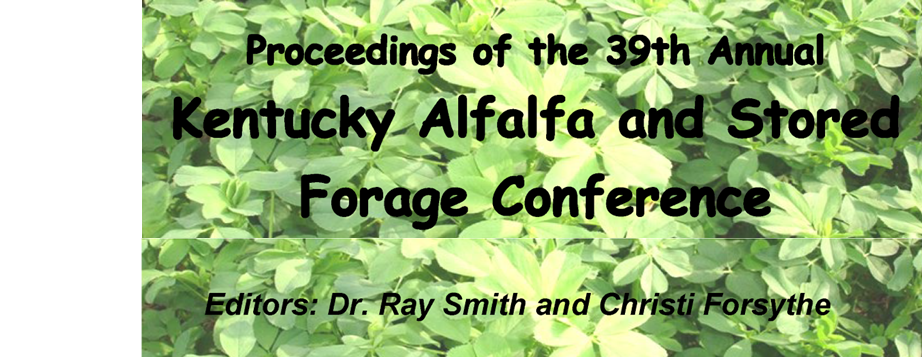Start Date
2-20-2020 1:30 PM
Description
The importance of weed control in alfalfa production should not be overlooked, especially when you consider the high investment associated with forage legumes. Weeds have the potential to reduce forage yield by competing for water, sunlight, and nutrients. For example, yield obtained from the first cutting of alfalfa can be significantly reduced by a heavy infestation of common chickweed and other winter annual weeds. In addition to yield losses, weeds can lower forage quality, increase the incidence of disease and insect problems, cause premature stand loss, and create harvesting problems. Some weeds are unpalatable to livestock or, in some cases, may be poisonous.
Included in
What’s New in Alfalfa Weed Control?
The importance of weed control in alfalfa production should not be overlooked, especially when you consider the high investment associated with forage legumes. Weeds have the potential to reduce forage yield by competing for water, sunlight, and nutrients. For example, yield obtained from the first cutting of alfalfa can be significantly reduced by a heavy infestation of common chickweed and other winter annual weeds. In addition to yield losses, weeds can lower forage quality, increase the incidence of disease and insect problems, cause premature stand loss, and create harvesting problems. Some weeds are unpalatable to livestock or, in some cases, may be poisonous.


Speaker's Bio
J.D. Green, Ph.D. is an Extension Professor in the Department of Plant and Soil Sciences at the University of Kentucky. His areas of interest include weed identification and control methods for grain crops (corn, grain, sorghum, soybean, wheat), forage crops (alfalfa, pastures, hayfields), turf, and non-cropland areas. Dr. Green is the author of many widely used weed management publications including “Broadleaf Weeds of Kentucky” and was the lead author for the recently updated “Weed Control in Alfalfa and Other Forage Legume Crops”. He also is recognized as a frequent speaker at field days and county meetings and regularly receives high ratings for his responsiveness to questions from county agents. Dr. Green earned his Ph.D. in Crop Science at Oklahoma State University.